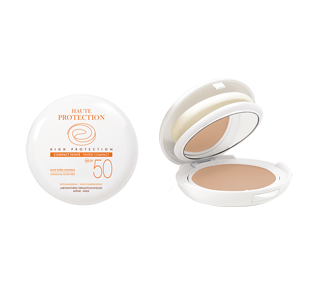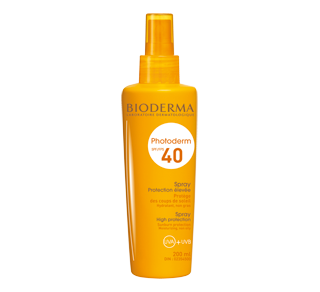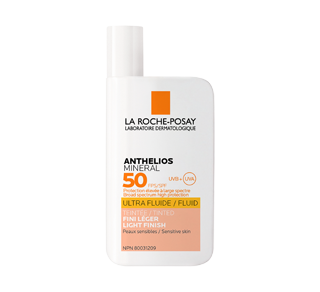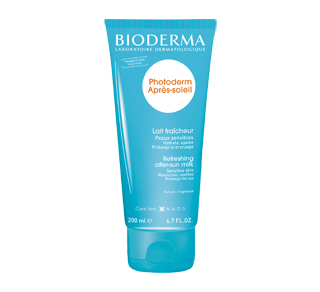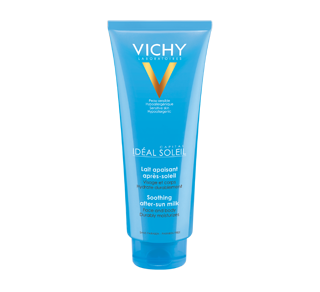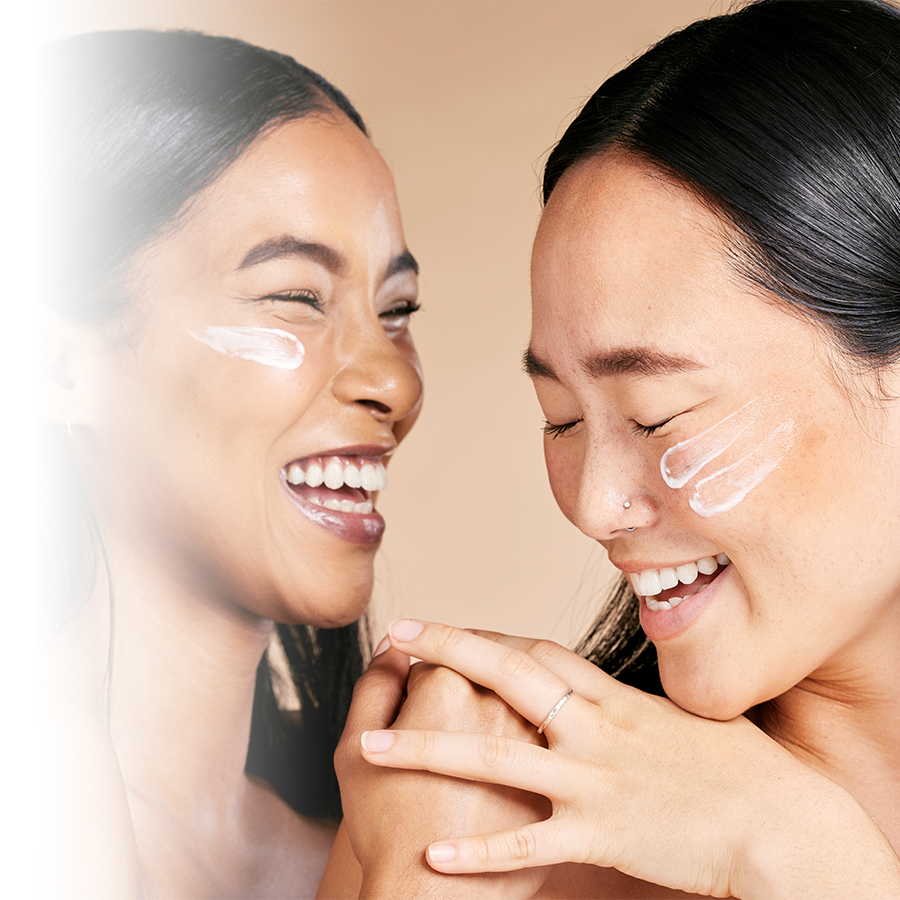Sun protection factor (SPF), ultraviolet (UV) protection, filters, ingredients, water resistance... Choosing your sunscreen can quickly turn into a headache. Find out how to choose the sunscreen best suited to your skin and lifestyle, so you can enjoy the sun in complete safety and peace of mind!
What is sunscreen and what is it used for?
Sunscreen acts as a barrier between your skin and UV rays. It helps prevent sunburn, premature aging and skin lesions. Depending on its formula, it acts by absorbing, reflecting or diffusing harmful rays.
There are two main families of filters: chemical filters, which absorb UV rays, and mineral filters, which reflect them back like a mirror. Sunscreen, unlike moisturizer or makeup with SPF, is formulated to guarantee complete, stable protection against UV rays, even during long exposure.
How do we determine our skin phototype?
Everyone has their own phototype, classified from 1 to 6. It depends on hair colour, skin tone, frequency of sunburn and type of tan. The lower it is, the easier the skin can burn.
- Phototype 1: Very fair skin that always burns and never tans;
- Phototype 2: Fair skin that often burns and tans slightly;
- Phototype 3: Intermediate skin that burns moderately and gradually tans;
- Phototype 4: Matte skin that burns little and tans easily;
- Phototype 5: Dark skin that rarely burns, but tans well;
- Phototype 6: Black skin that never burns and with a very dark tan;
If you have a high phototype and a golden complexion all year round, you're in luck... but don't think you're invincible! No one is immune to the harmful effects of UV rays.
Each skin type has its own sun protection. It is essential to know your needs and apply the right sunscreen. To learn more, see our article on this topic.
How does sunscreen work?
Ultraviolet (UV) rays are always present, even on grey, cold or cloudy days. Invisible but powerful, they are divided into two main types:
- UVA ray (ultraviolet type A), which penetrate deep into the skin and are responsible for premature aging, dark spots and certain skin cancers.
- UVB rays (ultraviolet type B), which act more on the surface and cause sunburn.
A good sunscreen is also photostable, meaning it retains its effectiveness even under intense sunlight. This is what keeps your skin protected for longer, provided you reapply the product every two hours or after swimming.
What is the difference between sun cream and sunscreen?
The term sun cream is often used to refer to any sun protection product. However, we sometimes distinguish sun cream, with its richer, nourishing texture, from sunscreen, often formulated with mineral filters and suitable for sensitive or reactive skin.
Sunscreen is generally perceived as a physical barrier, forming a protective film on the skin's surface. The more classic sun cream penetrates the skin to filter out UV rays via chemical filters. Both options are effective, provided they are chosen and applied correctly.
How to choose the right sunscreen for your skin?
Your choice of sunscreen depends on several factors:
- Your phototype;
- Your skin type (dry, oily, combination, sensitive);
- Environment (city, beach, mountains);
- Your level of exposure;
Dry skin will benefit from a sun cream enriched with moisturizing active ingredients, while sensitive skin will prefer a fragrance- and alcohol-free formula containing mineral filters.
What is the best sun protection?
The best sun protection is the one that suits your skin type, your environment and your lifestyle habits. A good product should offer broad-spectrum protection, effectively blocking both UVA and UVB, and have an SPF index of at least 30. It is also important that the sunscreen is photostable, i.e., retains its performance even after prolonged exposure to the sun.
When should I use sunscreen?
For sunscreen to be fully effective, we recommend applying it around 20 to 30 minutes before exposure, to give the filters time to work. Regularity is key: even the best product needs to be reapplied every two hours, or after swimming, strenuous physical activity, etc. Adopting this reflex helps maintain a constant level of protection, essential to your skin's health.
Which sunscreen is right for oily skin?
Oily skin has very specific needs: shine, excess sebum and imperfections make using certain sun care products uncomfortable, even counter-productive. To avoid the "shiny skin" effect or clogged pores, we recommend non-comedogenic formulas, specially designed not to contribute to pimples or blackheads. Gel-cream, matifying fluids and dry touch textures are especially popular.
Quick tip, when in doubt, it's best to turn to a broad-spectrum formula with an SPF of at least 30, or even 50 for more vulnerable skin.
Which sunscreen is right for combination skin?
Finding a suitable sunscreen for combination skin can seem complex, since it has both dry and oily areas. Balanced formulas, enriched with light moisturizing active ingredients and sebum-regulating agents, are the most effective. Fluid or gel textures, often used in daily face care products, are ideal for combination skin, as they blend well with the skin, even in hot weather. Some sunscreens also incorporate anti-aging or soothing benefits, making them all-in-one products, perfect for quick and effective routines.
Multipurpose products as a solution for oily and combination skin
There are a growing number of fast-absorbing, dry-touch formulas that prevent clogged pores – THE solution for combination or oily skin! Multipurpose creams are also popular: in addition to blocking out the sun, these products, packed with beneficial ingredients, can provide moisturizing and anti-aging benefits, while protecting reactive skin. As a bonus, they are often water-resistant.
Did you know? Some medications can make skin more sensitive to the sun's rays. If you have any questions about a prescription, talk to your pharmacist.
How do I choose the best sunscreen for my face?
Facial skin is the most delicate part of the body and the most exposed to UV rays. To kill two birds with one stone, choose Dermo-Cosmetics suncare products. These formulas, with their very high protection factor, form an effective barrier against the sun and other aggressions.
Some of these sun care products contain active anti-pollution ingredients or antioxidants. A little extra: their ultralight, non-sticky texture mattifies the skin by absorbing sweat and oil. No more sticky feel and shiny skin!
Did you know? There are even delicately tinted treatments that subtly blend into the skin to smooth and illuminate. See our 5 tinted sunscreens just for you.
What is the difference with mineral sunscreens?
In contrast to chemical filters, which absorb UV rays before they reach the skin, mineral sunscreens act like a physical shield: they reflect the rays back to the epidermal surface. Made with natural ingredients such as zinc oxide or titanium dioxide, they are often better tolerated by sensitive or reactive skins.
Which sun cream to choose: FPS 30 or 50?
Many myths surround the sun protection factor. A 50 screen blocks around 5% more UVB rays than a 15 screen. The FPS index represents the relationship between the time needed for UV radiation to produce a sunburn on protected skin, and the time it would take to burn skin without a screen.
An SPF of 50 indicates that you can, in theory, expose yourself to the sun 50 times longer without damage. This index does not protect three times better as an SPF 15, but three times longer. For optimal protection, it is generally advisable to use an SPF of at least 30. For sensitive or reactive skin, we recommend using an index between 40 and 50.
Did you know? Windows do not block UV rays. It is therefore essential to wear sunscreen even if you spend the day at home or are riding in a car.
Why is after-sun care essential for your skin?
Since no screen blocks 100% of the UV rays, it is important to give the skin a regenerating treatment after each exposure. After-sun treatments nourish the skin, relieve the sensation of tightness caused by dehydration and envelope the body with a refreshing veil. By preventing skin from drying out, they prolong the tan - and healthy complexion!

